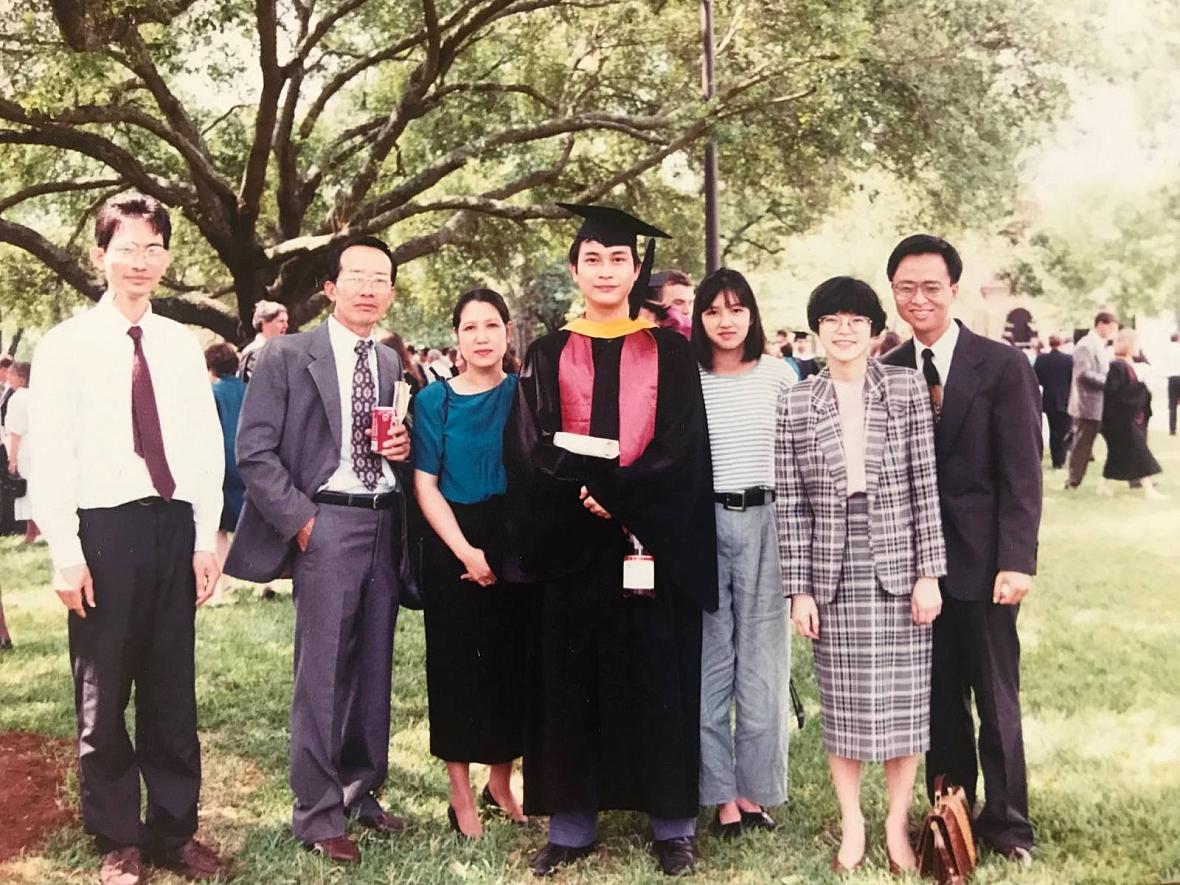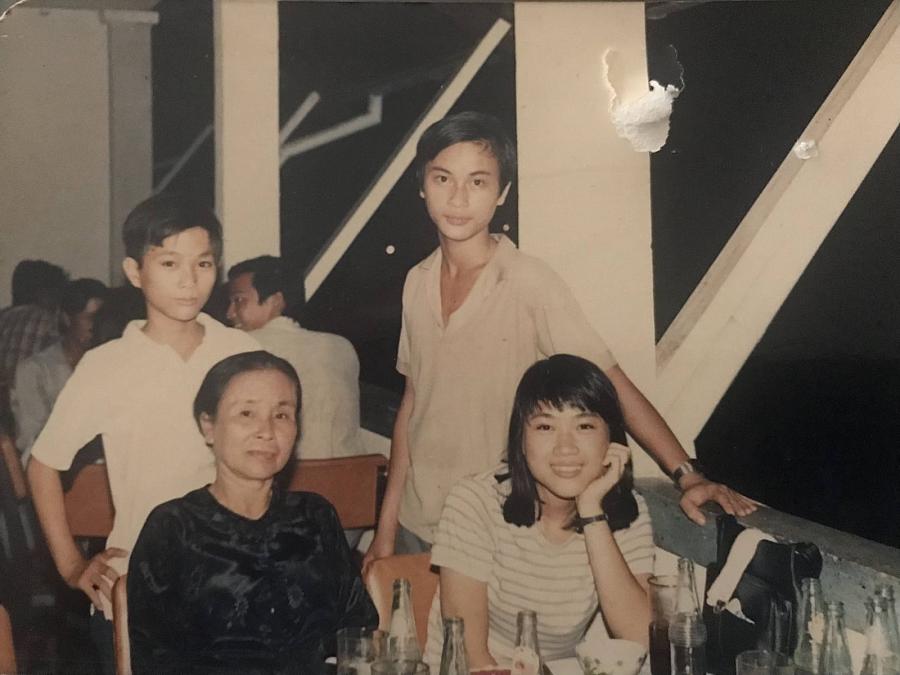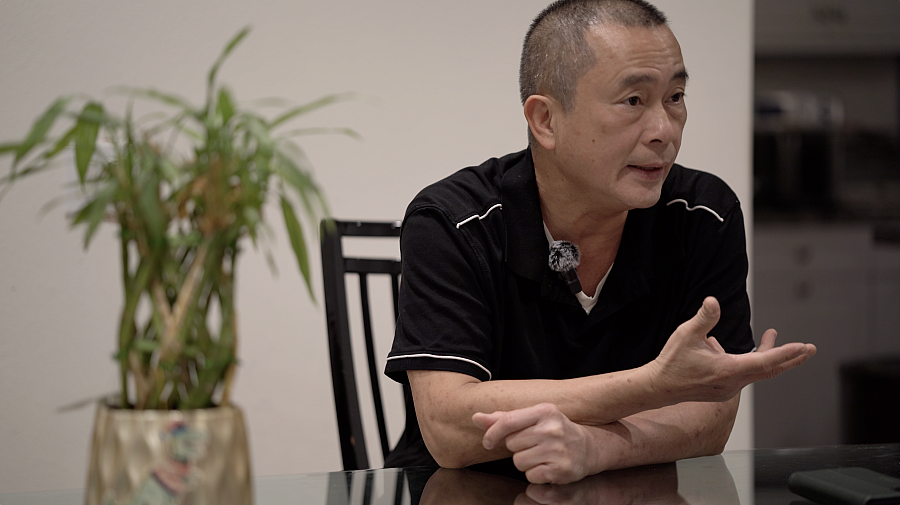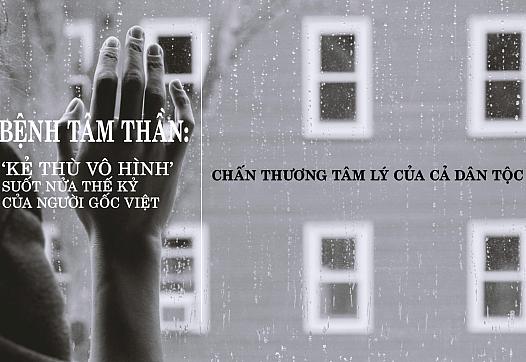The journey of Giao Nguyen from a patient to a psychiatrist
The story was originally published in Nguoi Viet with support from the 2023 Impact Fund for Reporting on Health Equity and Health Systems.

Dr Giao Nguyen graduated Rice University
Courtesy Giao Nguyen
When Giao Nguyen, then 17 years old, said goodbye to his family to get on a boat to cross the ocean, he never thought he would become a psychiatrist. Nor did he believe that one day, he would be a patient who had been battling mental health for almost five years. Because of that, Nguyen appreciates the value of life and understands the job he has chosen very well.
Giving back
On the evening of the last day of 2023, a man in his 50s sat playing with his young son after dinner in a cozy, simple cottage. He had just finished a long day at Tibor Rubin VA Medical Center in Los Angeles County. He is Dr. Giao Nguyen, the psychiatrist.
"My whole time now is work and caring for my family and myself," said Nguyen. "For the past decade, I have had to focus on coping with illness and other obstacles in life that I've shelved everything else."
Nguyen has been through the most challenging period for many years, so he understands how important mental health is. One of the reasons he came to work for LA County was because he had spent five months as a mental health patient in Fairfax County.
"The biggest reason I'm where I am today is because so many people have helped me," he said.
More than ten years ago, he moved back to California because: "The outdoor environment is good for mental health, and Southern California weather is ideal for that. Southern California has the largest concentration of Vietnamese Americans, and I want to work with this community.”
Survival
In 1986, Nguyen was the only member of his family to escape Vietnam. In the days of life-and-death danger in the ocean, the 17-year-old defended himself psychologically by thinking that what was going on around him was not real. After six or seven days at sea, the ship safely arrived on KuKu Island, Indonesia. The refugees settled in America after three weeks on the island.
"In my early years in America, I didn't know English, I didn't know American culture, I didn't have money. I started to get depressed,” Nguyen said. “After that, I went to school and found a job to manage my life. Then I was lucky to be accepted to Rice University in Houston, Texas, majoring in electrical engineering."

Dr Giao Nguyen (standing right) together with his Mom and siblings in the most _deluxe_ farewell dinner before the day he got on the boat to cross the ocean
Courtesy Giao Nguyen
Rice University is a private school. The majority of students are white, well-off, middle-class.
"At school, I was an impoverished English student, lacking knowledge of American culture and struggling to keep up with my peers. I have to try hard. Perhaps because of trying too hard, my depression and anxiety are getting worse,” Nguyen said.
Then, from Houston, he went to Harvard T.H. Chan School of Public Health.
This place proved to be quite challenging. The winters seemed to last forever, with a constant chill and little sunshine brightening things up. Unfortunately, this environment caused his illness to worsen. He had to attend school during the day and work at night. The combination of these two demanding commitments became a great source of stress.
After finishing his master's degree at Harvard University in 1994, he enrolled at Tufts University School of Medicine in Boston and graduated in 1999.
"I'm an introverted person. English is not my native language, so attending medical school is much more challenging,” he said. “I must always try to deal with the language barrier to learn and talk to patients. The pressures build up. By the time I was a resident at Boston Medical Center, doing internal medicine, then moving to psychiatry, it was so stressful, I collapsed."
It was 2004. For a very long time, there was nothing he could do. He took time off from school and work.
"I went back to Vietnam for about five or six months but didn't go anywhere; I just stayed in my room all day. Luckily, I had a sister to help take care of me and get through those days," he said.
When Nguyen returned to the United States, he moved back to Virginia. There was some money left to live on, so he locked himself in his room day after day, week after week.
He said he ate candy and drank water. "I ate chocolate candy that time. All around my bed were pieces of candy-wrapping foil.”
According to Nguyen, when a person is seriously ill, what immediately comes to mind is how to relieve pain as quickly as possible. During his sick years, he used alcohol and smoked heavily.
"Because alcohol and tobacco are the way that mentally ill people self-medicate to feel better despite its long-term harmful consequences," Nguyen added.
His illness worsened, and he was admitted to the state's Fairfax County psychiatric hospital. At that time, his depression was very severe.
'Stand up and move on'
It was during his struggle with the disease for survival that he realized the distance that people kept from people like him. When his illness was no longer life-threatening, he was discharged from the hospital and found "people looked at me very differently."
"I once went to Marian Church in Carthage, Missouri, with my brother and sister-in-law. I met a friend from high school in Vietnam. At that time, I was very sick, my hair was messy, and I didn't shower for days. He saw me like that, then told other friends, and there was a rumor that I was bluffing; I couldn’t be a medicine student with an outfit like that,” Nguyen said.
"I believe this is how a person with mental illness is usually treated," he stated.
In 2009, due to his determination to see psychiatrists and psychotherapists to improve his health, his illness gradually decreased. When he realized he could return to work, he got a job at Virginia's Woodburn Crisis Care Center in Fairfax County.
"At first, I worked 10 hours a week, then 20 hours a week, then increased. When I was completely healthy, I sought to return to medical school. Luckily, I still had the opportunity to continue as a resident and become a doctor," he said.
"I understand my patients; I understand what they're going through, what they endure, the words that feed on other people's thoughts," he said.
For Nguyen, the biggest challenge for a psychiatrist is patience.
He said: "Patients are yelling, cursing, demanding this and that, annoying... we still have to be patient and listen to them. 'Empathy' is more important than 'sympathy.'"
Fighting for five long years in melancholy was not a simple battle. There was a tremendous motivation to help him return to life. He said, "That's the love my parents gave me."
"I think I have to try not to spare the love my parents gave me. Secondly, I have to do something in my life. If you give it all up, it's too wasteful. I experienced poverty in Vietnam, crossed the ocean, and then spent ten years studying in America. I want to save myself and help people like me and this society. I have to stand up and move on."

Dr Giao Nguyen discusses about The Invisible Enemy of Vietnamese descent over the past half-century
Courtesy Kalynh Ngo
Daniel Swint, who studied with Nguyen at Rice University from 1989 to 1992, remembered:
“When I was at Rice, I thought Giao was an intense and generally serious person. He worked very hard. We were in a few of the same classes and lived in the same dorm. I saw him drink a lot at parties too. Rice University was a very competitive and demanding school. I enjoyed talking to Giao and playing pool and ping pong with him. I was surprised he graduated from Rice quickly in a challenging major.”
According to Swint, he didn't know his friend had mental health issues, nor about Nguyen’s anecdote of crossing the border. Swint said: "I only learned more about his struggles through recent conversations on Facebook. In retrospect, it must have been tough for Giao to navigate a new country, a new language, a difficult university, poverty and trying to finish college early. The pressure on him had to be immense. Fortunately, I think a person at Rice helped him in some of his darkest times, so it is a great relief that Giao reached out and someone responded with help when he was in college.”
Nguyen explained the reason he decided to choose this major is: “I have a family history of depression and anxiety. My siblings are struggling with these issues right now. I want to help people like us.”
“Psychiatry requires knowledge in medicine, the human body, and the brain. Cultural literacy is also crucial. I find it all interesting.”
Nguyen once analyzed that 60% of the causes of mental illness are genetic. “So, are you worried about your only young son?” I asked. He answered in a soft tone:
"Absolutely. From a scientific perspective, I have analyzed that my child has only inherited 30% of the traits from me that make up a total of 60%. Hopefully, this 30% is decent. As I have only one child, I must stay healthy and avoid any actions that may cause stress to myself and those around me.”
To avoid those pressures, what do you do? I asked Nguyen.
He said, "Stay healthy, play sports. If we could, we shouldn't make others jealous of what we have. People themselves are always competitive, wanting to be equal but instead empathize with each other."
As one experiences more, they learn to appreciate peace and the present moment. Nguyen discovered mental and physical happiness after fighting through his illness.
There are two more hours left until New Year's Eve. This home does not display many traditions of celebrating the night of exorcism. Perhaps, as his personality puts it: “Quite often, silence is the music I like the best, and solitude is my greatest companion.”


